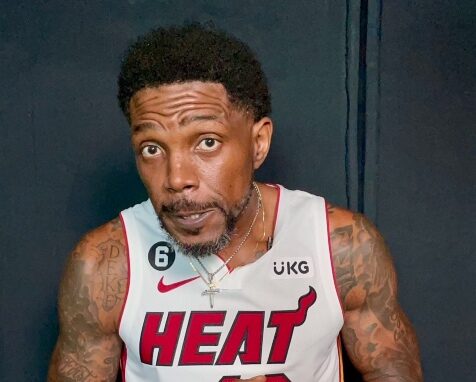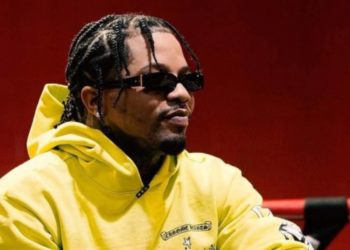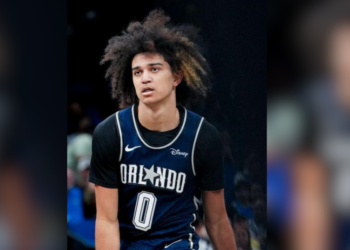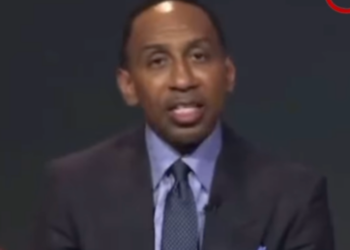Veteran Miami Heat player Udonis Haslem is still an active player with the organization after 20 seasons. On a podcast, he explained why he chose to play for the Heats when he would have made more money playing for the Denver Nuggets.
On The Pivot podcast, Haslem, 42, spoke with hosts Channing Crowder, Fred Taylor, and Ryan Clark, three former NFL players, about why he turned down a 40 million offer from Denver in favor of a 33 million deal from Miami.
View this post on Instagram
Simply put, Haslem thought he was a better fit for the Heats, his hometown in Miami, than on the Nuggets back in 2003, according to USA Today’s fan blog, Heat Nation.
“One thing I was was I was always self-aware,” said Haslem on The Pivot Podcast. “I always knew who I was and what I was. At that time, the first contract, it was offered from Denver. I got 33 [million] from the Heat. Denver offered me 40 [million]. I just didn’t think I was a good fit for Denver. I just didn’t think I could fit there. … You ain’t lookin’ at evolved U.D., you lookin’ at U.D. that would f— the whole locker room up. So I can’t go there. That wasn’t for me at that time.”
View this post on Instagram
Haslem went undrafted in the 2002 NBA draft but signed with the Miami Heat as a free agent in August of that year.
For context, in 2003, the Miami Heat was a developing team struggling to make a name for itself. Miami Heat finished 25–57 to end the 2002–2003 season as long-time head coach Pat Riley, who also served as the organization’s president, stepped down from coaching as the team finished 7th in the Atlantic Division.
The team missed the playoffs that season.
In comparison, The Nuggets was no different in terms of its winnings, finishing the 2002-2003 season with a record of 17-65 and missing the playoffs, too.
Haslem knew accepting an offer at Denver meant signing up for “an immature Nuggets team that lacked discipline and culture,” Heat Nation reported. Under Riley’s leadership, Haslem was more confident that he could play for a team that evoked a championship culture.
The turning point for the Heat was when the team secured 5th overall pick rookie Dwyane Wade and formed a roster that included players such as Caron Butler, Lamar Odom, Eddie Jones, Brian Grant, and Rafer Alston.
Haslem benefited from his intuition and self-affirmation as the team’s progress got better following the addition of Shaquille O’Neal in 2004 and the continued development of Wade; the Heat would go on to win their first NBA championship in 2006, led by Finals MVP Wade.
He quickly became a key player for the team and was a part of the Heat’s championship teams in 2006, 2012, and 2013. He was known for his toughness, rebounding, defense, and ability to hit mid-range jump shots.
Between 2010 and 2014, he was a supportive bench player as a free agent on the team for Lebron James and Chris Bosh in the frontcourt.
Haslem’s offer on his 2010 renewal contract with the champion-bound Heat was considerably lower than when he was a rookie.
He was set to be signed to another team the following season with a contract worth $35 million. However, Wade James, and Bosh, referred to as the Big 3, took pay cuts to secure a $20 million offer for Haslem. Although the pay is significantly less than what he is valued and used to, Haslem saw the gesture as motivation to stay with the Heat.
“But the fact that Bron, CB, and D-Wade collaborated to take less money to make that $20 [million] available for me, it said enough because they didn’t have to do that,” Haslem said. “Dwyane understood. Bron and CB don’t know me from a can of paint. They ain’t ever played with me; they don’t know nothing about me,” he continued. “But the fact that they was able to say, ‘OK, cool. We need him. We need him to win.’ That let me know I got to get them, boys, they money worth.”
Haslem’s contributions to the Heat made the team a perennial playoff team. However, lately, in the 2022-2023 season, he has only played six games. The organization is currently in seventh place in the Eastern Conference, with no hope the team will be a major contender for the remainder of the season.















